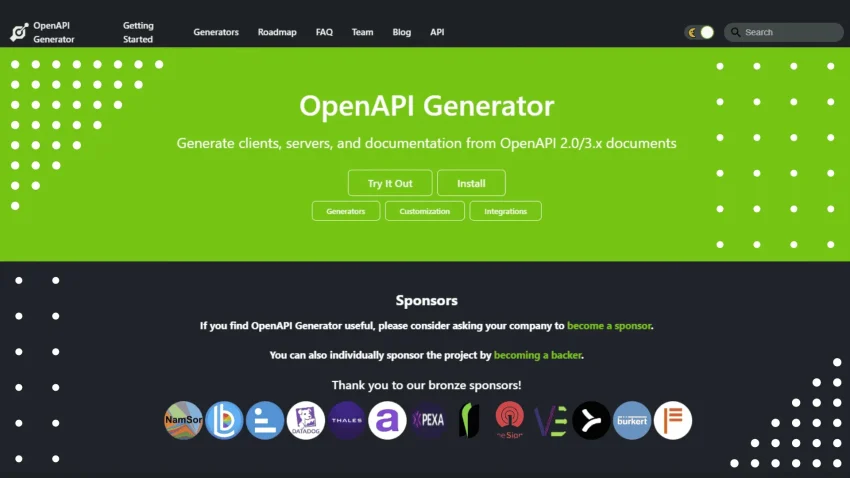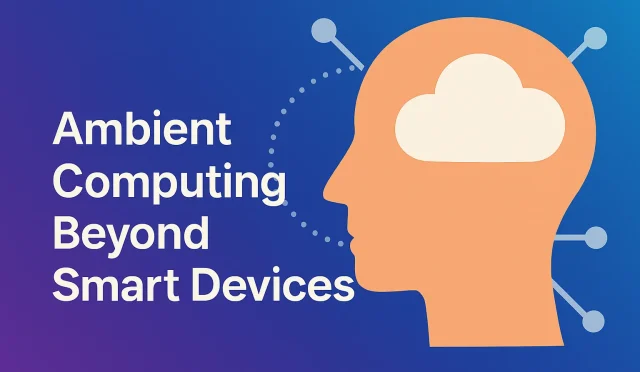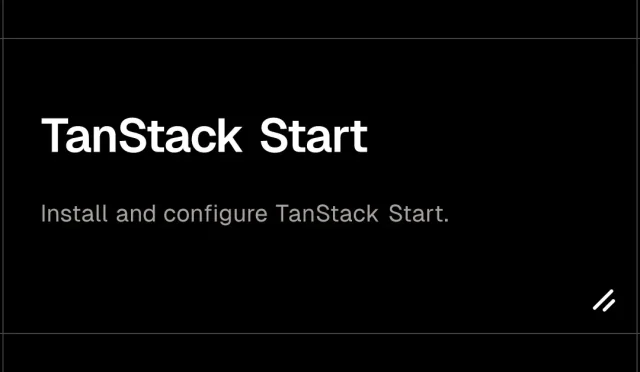API Generators are essential tools that streamline the development process by automating the creation of application programming interfaces. These generators simplify tasks for developers, whether they are working on client-side or server-side applications, and help ensure that best practices are followed in API design. With a range of options available, including client generators, server generators, and documentation generators, developers can efficiently produce code that meets specific needs. Furthermore, API generators encompass schema and config generators, allowing for seamless integration of various components. By leveraging these tools, teams can significantly reduce development time while improving the consistency and quality of their APIs.
Also referred to as API creation tools, API Generators facilitate the rapid development of programming interfaces for applications. These versatile resources cater to diverse needs, enabling the generation of client-side solutions, server-side frameworks, and comprehensive documentation. By utilizing schema and configuration generators, developers can create fully-functional APIs that adhere to industry standards and specifications. As technology evolves, the role of these generators becomes increasingly crucial, helping development teams produce reliable and efficient interfaces with minimal manual intervention. Embracing API Generators ultimately leads to enhanced productivity and more effective API management.
Exploring Client Generators: A Comprehensive Overview
Client generators play a critical role in modern software development, particularly when it comes to generating code that can interact with various API endpoints. They support numerous programming languages, enabling developers to quickly scaffold the necessary code required to communicate with server APIs. Popular choices include Ada, Java, Python, and JavaScript, each catering to different project needs and preferences. Understanding the strengths and weaknesses of these client generators can significantly enhance the speed and quality of your development workflow.
For instance, using the Java Spring client generator can facilitate seamless integration with Java-based backends, while the Python Flask client generator is perfect for developers looking to build lightweight applications with Python. Many of these generators include built-in options for RESTful APIs, allowing users to work efficiently with data serialization and request handling. Additionally, recent advancements in client generators have introduced features like async support and enhanced error handling, which further improve the developer experience.
The Evolution of Server Generators in API Development
Server generators are vital for setting up the foundational architecture of an application. They allow developers to quickly create robust server-side applications that can serve requests from clients. With options ranging from ASP.NET for Microsoft-centric development to Node.js for JavaScript environments, the versatility of server generators ensures that developers can find the right tool to suit their needs. As the demand for server-side solutions grows, so too does the functionality and performance of these generators.
Moreover, contemporary server generators provide not just boilerplate code but also options for integrating middleware, authentication, and data validation. This helps developers focus on implementing business logic rather than getting bogged down in routine setup tasks. For example, using frameworks like Java Micronaut or Go Echo can significantly cut down development time while enhancing performance and resilience under load, allowing teams to deliver high-quality software solutions more efficiently.
Documentation Generators: Ensuring Clarity in API Communication
Efficient documentation is essential for any API. Documentation generators help automate the creation of clear, comprehensive guides and references. By utilizing tools like Markdown or Asciidoc generators, developers can create easily maintainable documentation that reflects the functionalities of their APIs directly from code comments or annotations. This ensures that the documentation stays in sync with the source code, minimizing discrepancies and improving the developer experience for those consuming the API.
In addition, automated documentation helps facilitate onboarding for new developers, enabling them to understand the workings of an API without extensive handholding. As APIs evolve, using documentation generators allows teams to quickly update their resources, improving overall communication within development teams and with external stakeholders. Whether it’s API endpoints or data flow, effective documentation produced by these generators can lead to enhanced collaboration and a clearer understanding of system architectures.
Understanding Schema Generators and Their Importance
Schema generators are crucial in defining how data is structured within an application or system. They assist developers in creating schema definitions that facilitate proper data validation and ensure that applications handle data correctly and efficiently. For example, GraphQL schema generators can automatically produce type definitions based on specified queries, making it easier to understand the structure of data interactions. Similarly, Protobuf and Avro schema generators are valuable for projects involving serious data interchange, improving consistency and performance.
Furthermore, schema generators simplify the process of maintaining data integrity in larger applications by clearly laying out the relationships between different data entities. This can significantly reduce the chances of errors arising from incorrect data handling. By employing schema generators, developers can create more robust systems that ease debugging and enhance data validation, ultimately leading to better application performance.
Config Generators: Streamlining Configuration Management
Configuration is key to optimizing application performance and making deployment smoother. Config generators aid developers in setting up the necessary configuration files based on predefined templates or custom inputs. This automates the tedious process of handling different environment setups, ensuring that configurations are consistent and error-free across development and production environments. For instance, a generator that produces Apache configuration files can reduce the complexity of setting up web servers by automating many repetitive tasks.
Additionally, config generators can integrate with other tools and scripts, creating a cohesive system for managing multiple applications. By leveraging these generators, developers can focus on more strategic aspects of application management rather than getting caught up in low-level configuration details that can be automated. As the complexity of applications grows, so does the need for effective configuration management, making the role of config generators more critical than ever.
API Generators: Revolutionizing Development Workflows
API generators are reshaping the development landscape by allowing programmers to quickly produce client and server code from API specifications. This capability streamlines the entire development workflow, significantly reducing the time developers spend writing boilerplate code. Various tools specializing in API generation ensure that developers can build upon the latest standards, such as OpenAPI, creating a consistent and predictable output for various programming environments.
Furthermore, API generators often come equipped with integrations for version control, testing frameworks, and deployment pipelines, enabling teams to adopt continuous integration and delivery practices with ease. By generating not only the API client and server code but also the accompanying documentation, schema definitions, and configuration files, API generators foster better collaboration between teams, enhance code quality, and significantly accelerate time-to-market for software products.
Enhancing Development with Modern Client and Server Solutions
Modern client and server generators are equipped with features that enhance their capabilities and usability significantly. These tools often leverage the latest advancements in language features and frameworks to produce highly efficient and effective code templates. For instance, frameworks like Kotlin and Scala offer powerful features that are ideal for generating both client and server code, improving productivity and reducing the potential for errors in coding.
Moreover, as developers increasingly embrace microservices and serverless architectures, the demand for lightweight and adaptable client and server generators rises. Solutions that facilitate easy integration with cloud services or continuous deployment frameworks are in high demand, as they allow teams to focus on delivering business value while ensuring high availability and performance of their systems.
The Role of Documentation and Schema in Development Processes
Documentation and schema definitions are fundamental components of any successful development process. They provide the necessary context and clarity needed for developers to understand how applications interact with one another. Tools that generate documentation automatically from comments or schema generators that create definitions based on existing code can save developers countless hours, allowing them to focus on creating new features and improving user experiences.
In a well-organized system, properly documented APIs combined with robust schema definitions create a collaborative environment where developers and stakeholders can effectively communicate requirements and expectations. As a result, the decision-making process becomes more efficient, leading to higher-quality applications delivered in shorter timeframes. Companies that invest in effective documentation and schema management tend to experience reduced onboarding time for new developers, streamlined updates, and enhanced product reliability.
Config Management Tools and Their Impact on Development Efficiency
Config management tools are essential for maintaining the structure and functionality of modern applications. They provide a standardized approach to managing different environment settings, ensuring consistency and reliability during deployment. By utilizing tools that support various configuration generators, teams can concentrate on the logic of their applications instead of worrying about the minute details of environment setup.
In addition, the impact of efficient config management extends beyond initial setup. It aids in monitoring and adjusting configurations as required, providing teams with the agility they need to respond to changes quickly. This flexibility greatly enhances the overall development process, leading to smoother deployments and more resilient applications that can adapt to new challenges in dynamic computing environments.
Frequently Asked Questions
What are API Generators and how do they benefit developers?
API Generators automate the creation of APIs by generating boilerplate code for client and server implementations, schema definitions, and documentation. This significantly reduces development time, ensures consistency, and helps in maintaining code quality. Developers can focus more on business logic rather than the repetitive tasks of API design.
What types of CLIENT generators are available in API Generators?
API Generators provide a wide range of CLIENT generators including popular languages such as Java, Python, JavaScript, Dart, and C#. Each generator supports specific frameworks and libraries, allowing developers to easily integrate APIs into their applications with tailored client code.
How do SERVER generators work in API Generators?
SERVER generators in API Generators facilitate the rapid creation of server-side applications by generating necessary code for various platforms like Node.js, Java, Python, and more. These generators create a foundational structure that developers can extend to implement their business logic and functionalities.
What is the purpose of DOCUMENTATION generators in an API system?
DOCUMENTATION generators are designed to create comprehensive and user-friendly API documentation automatically. This ensures that users can easily understand how to integrate and use the API effectively, thereby improving user experience and reducing support queries.
Can you explain what SCHEMA generators are and their significance?
SCHEMA generators in API Generators create standardized schema definitions for data models, such as those required by databases or API specifications. This ensures that data integrity is maintained and that integrations are seamless across different systems, enhancing the overall robustness of the API.
What are CONFIG generators and how do they assist in API development?
CONFIG generators simplify the process of creating configuration files necessary for setting up APIs and their environments. For example, they can generate configurations for web servers like Apache, aiding developers in deploying their applications efficiently and accurately.
How do API Generators support multiple programming languages?
API Generators support multiple programming languages and frameworks by offering specific CLIENT and SERVER generators tailored to each language’s syntax and ecosystem. This flexibility allows developers to select the most appropriate tools for their projects, making the API integration process smoother.
What are some popular CLIENT generators included in API Generators?
Some popular CLIENT generators found in API Generators include Java, Python, JavaScript, C#, and PHP. These generators help developers create client libraries that interact with APIs seamlessly, ensuring quick and efficient integration.
Why is it important to use API Generators for documentation?
Using API Generators for documentation is crucial as it automates the creation of accurate and up-to-date documentation. This not only saves time but also ensures that developers and users have access to clear guidelines for API usage, which can enhance the adoption and satisfaction rates.
How do API Generators enhance the efficiency of the development workflow?
API Generators enhance development efficiency by automating repetitive tasks such as generating client-side and server-side code, documentation, and schema definitions. This allows developers to reduce the time spent on these tasks, thus allocating more resources to feature development and innovation.
| Category | Generators | ||||||||||
|---|---|---|---|---|---|---|---|---|---|---|---|
| CLIENT | ada, android, apex, bash, c, clojure, cpp-oatpp-client, cpp-qt-client, cpp-restsdk, cpp-tiny (beta), cpp-tizen, cpp-ue4 (beta), crystal (beta), csharp, dart, dart-dio, eiffel, elixir, elm, erlang-client, erlang-proper, gdscript, go, groovy, haskell-http-client, java, java-helidon-client (beta), java-micronaut-client (beta), javascript, javascript-apollo-deprecated (deprecated), javascript-closure-angular (beta), javascript-flowtyped, jaxrs-cxf-client, jetbrains-http-client (experimental), jmeter, julia-client (beta), k6 (beta), kotlin, lua (beta), n4js (beta), nim (beta), objc, ocaml, perl, php, php-dt (beta), php-nextgen (beta), powershell (beta), python, python-pydantic-v1, r, ruby, rust, scala-akka, scala-gatling, scala-http4s, scala-pekko, scala-sttp, scala-sttp4 (beta), scalaz, swift-combine, swift5, swift6 (beta), typescript (experimental), typescript-angular, typescript-aurelia, typescript-axios, typescript-fetch, typescript-inversify, typescript-jquery, typescript-nestjs (experimental), typescript-node, typescript-redux-query, typescript-rxjs, xojo-client, zapier (beta)’]}},{ | SERVER | ada-server, aspnet-fastendpoints, aspnetcore, cpp-oatpp-server, cpp-pistache-server, cpp-qt-qhttpengine-server, cpp-restbed-server, cpp-restbed-server-deprecated, csharp-functions, erlang-server, erlang-server-deprecated (deprecated), fsharp-functions (beta), fsharp-giraffe-server (beta), go-echo-server (beta), go-gin-server, go-server, graphql-nodejs-express-server, haskell, haskell-yesod (beta), java-camel, java-helidon-server (beta), java-inflector, java-micronaut-server (beta), java-microprofile, java-msf4j, java-pkmst, java-play-framework, java-undertow-server, java-vertx (deprecated), java-vertx-web (beta), java-wiremock (beta), jaxrs-cxf, jaxrs-cxf-cdi, jaxrs-cxf-extended, jaxrs-jersey, jaxrs-resteasy, jaxrs-resteasy-eap, jaxrs-spec, julia-server (beta), kotlin-misk, kotlin-server, kotlin-spring, kotlin-vertx (beta), kotlin-wiremock (beta), nodejs-express-server (beta), php-flight (experimental), php-laravel, php-lumen, php-mezzio-ph, php-slim4, php-symfony, python-aiohttp, python-blueplanet, python-fastapi (beta), python-flask, ruby-on-rails, ruby-sinatra, rust-axum (beta), rust-server, rust-server-deprecated, scala-akka-http-server (beta), scala-cask, scala-finch, scala-http4s-server, scala-lagom-server, scala-play-server, scalatra, spring, typescript-nestjs-server (beta)’]}},{ | DOCUMENTATION | asciidoc, cwiki, dynamic-html, html, html2, markdown (beta), openapi, openapi-yaml, plantuml (beta)
,{ |
SCHEMA | avro-schema (beta), graphql-schema, ktorm-schema (beta), mysql-schema, postgresql-schema, postman-collection (beta), protobuf-schema (beta), wsdl-schema (beta)
,{ |
CONFIG | apache2, bach_background_https (experimental)
,{ |
GITHUB | General generators information can also be found on GitHub. |
Summary
API Generators play a crucial role in modern software development by facilitating the creation of APIs across various programming languages and frameworks. They streamline the development process, allowing developers to quickly generate boilerplate code, which can be further customized according to their needs. Offering a wide array of options for client, server, documentation, schema, and configuration generation, API Generators cater to diverse project needs and improve productivity. With options such as Java, Python, C++, and many more, developers are empowered to create robust APIs more efficiently.








